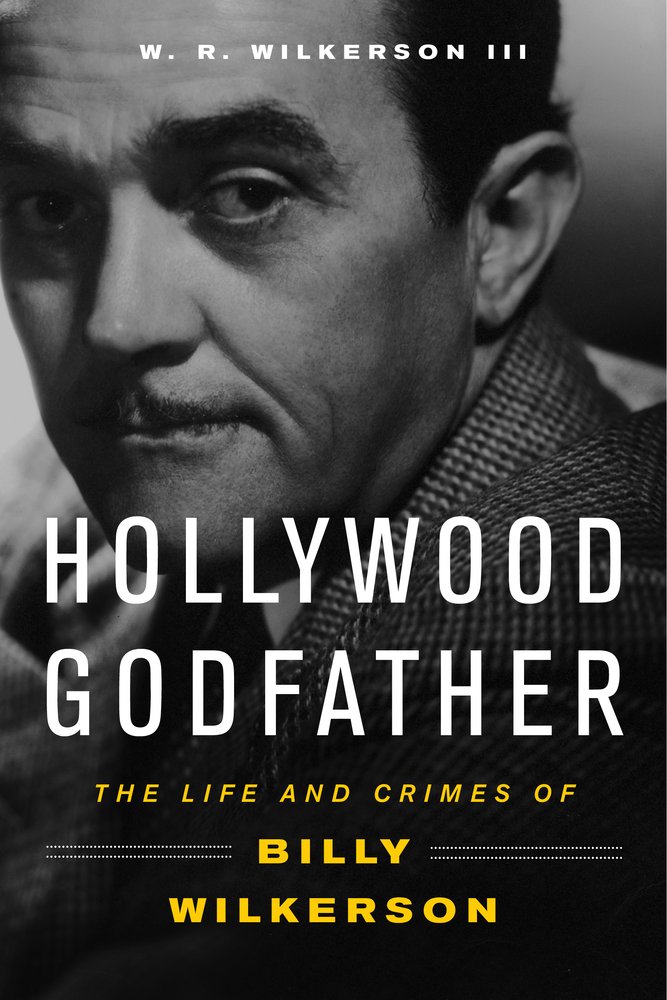Billy Wilkerson, Book 2, Part 2: The Midas Touch
William Richard “Billy” Wilkerson arrived in California in 1930 and set up Daily Printers Corporation in July. According to the biography, he borrowed $5,000 and launched The Hollywood Reporter. Printing costs were so high at the time that he bought a printing company so he could print in-house. His wife, Edith, handled administration and customer accounts and wrote much of the editorial copy.
Billy focused on writing a front-page editorial column called “Tradeviews.” It was part gossip and part Billy’s opinions. This column made him famous and would be a valuable weapon. Billy used it to criticize the Hollywood studio system, and the studio heads didn’t appreciate it. They tried to strong-arm Billy into writing what they wanted, but he refused. The studios retaliated and refused to advertise with him until he did as they said.
Billy was focused on providing content that readers wanted, which would grow his reader base. He instructed his reporters to do whatever had to be done to gather information—even go through the studios’ garbage. And Billy knew the studios didn’t treat workers well, so he championed the causes of blue-collar studio workers, directors, and others, which built him a loyal fan base. When newspapers around the country started picking up the Reporter’s editorials, Billy had the power to stop people from going to the movies, which reduced studio revenue.
By 1931, the Reporter was flush with ads and had power over the studios, who realized their plan to crush Billy had backfired. When Billy proved to Metro-Goldwyn-Mayer (MGM) head Louis B. Mayer that 5,000 papers nationwide reprinted the Reporter’s articles, Mayer was dumbfounded. Mayer and other studio heads agreed to yearly ad contracts with the Reporter to keep the peace with Billy. In just two years, Billy made the Reporter the most important film industry publication in Hollywood and was getting revenge on the people who killed his dream of owning a studio.
Billy and Edith missed New York food, and Billy was tired of driving around town for meetings. In May 1933, Billy opened Vendome, a lunchtime restaurant in Hollywood. He stocked delicacies from Europe and even sold European booze under the counter. This, combined with daily ads in the Reporter, made the restaurant the place to be seen by celebrities and the wealthy. It was wildly successful.
In 1933, President Roosevelt’s five-day bank holiday closed banks nationwide to prevent bank runs. Studios took advantage of this, and MGM forced employees to take a 50% pay cut for eight weeks or be fired. Billy learned about MGM’s plan to make the reductions permanent and wrote a blistering piece in the Reporter backing the writers’ union. Furious, Mayer reversed the pay reduction at MGM. He was so worried about Billy’s power and influence through the Reporter that he tried to buy Billy’s business for $300,000. Billy refused to sell.
Billy didn’t just fight the studios; he also had to fight competition. New York City–based Variety was a successful weekly trade publication that began covering Hollywood in 1933 when it launched Daily Variety. Realizing he could be put out of business by the larger competitor, Billy began a war to stop Variety from getting advertising sales. He even set up a dirty-tricks department to wage this war. The tactics worked and Billy fended off the competitor, albeit with questionable tactics.
In 1934, Billy faced a challenge when his insurance required that the abandoned building he was renting for wine storage not remain vacant. Unable to rent it out or find another use, he decided to open Café Trocadero, a French-themed restaurant and nightclub. To get people to come to the empty establishment, he claimed reservations were booked two weeks out and put velvet ropes outside to make people wait. In 24 months, it had grossed $3.8 million, making it the most successful Depression-era restaurant and nightclub in America. Billy had the Midas touch.
In a few short years, Billy had gone from broke to the upper echelons of entertainment and business by fighting against the studio heads. Billy was about to take his hatred of the studios to another level—one that was illegal.




